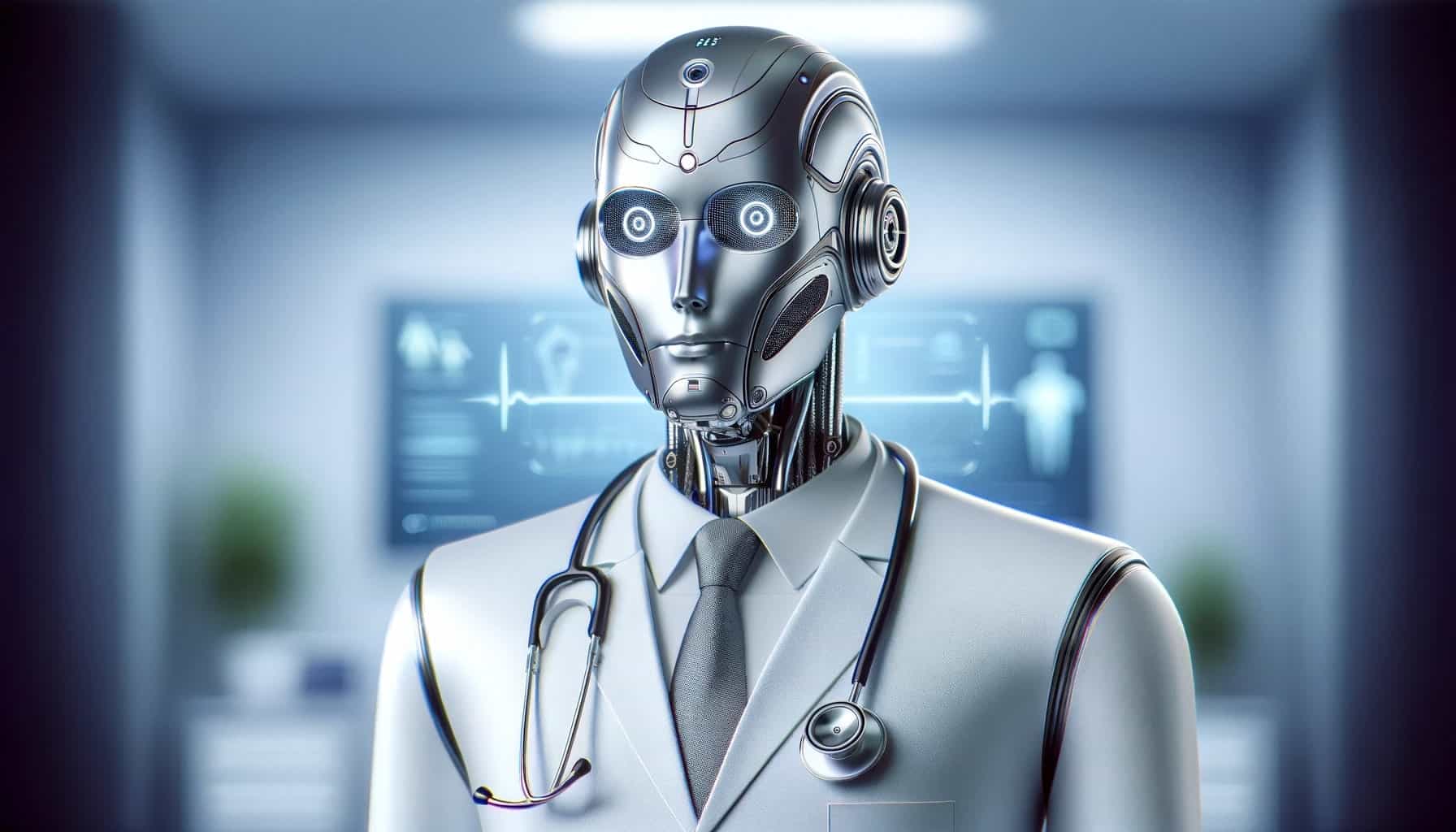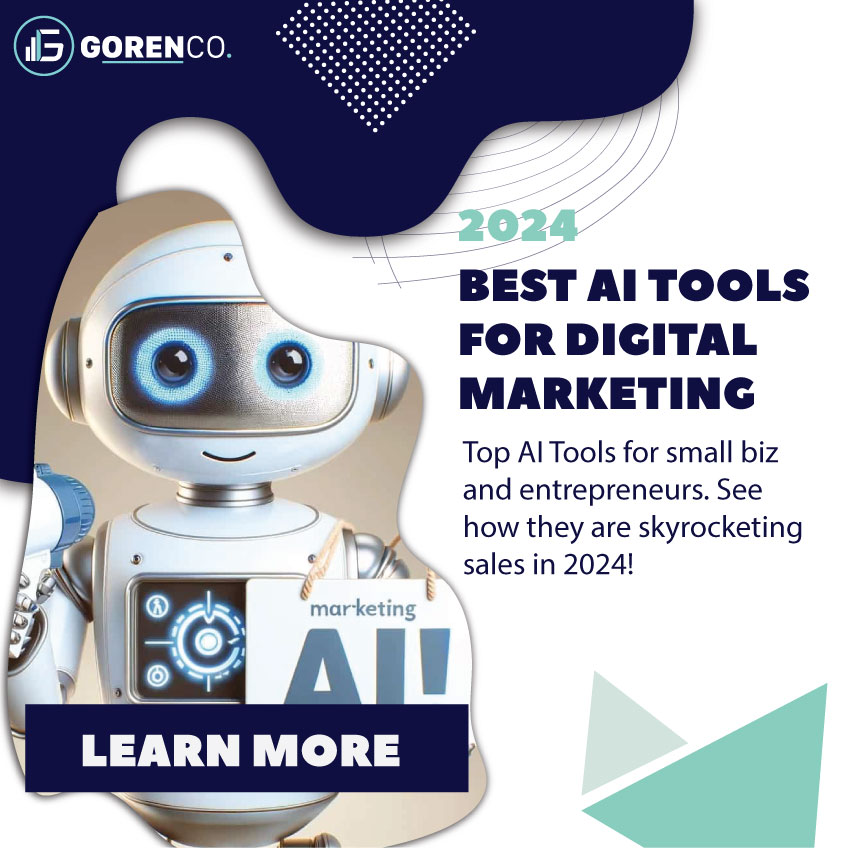The idea of generative AI in healthcare and medicine is a complex topic filled with conflicts and contradictions. All of the medical giants and start-ups are in an AI arms race. The big question – will it even work? We can all agree that in the healthcare setting, there are (should be) only two reasons to develop such technology: 1) To improve patient / societal outcomes; and 2) To reduce cost of healthcare.
The contradiction lies within the medical industrial complex. I bet you only thought there was a military one, of which President Eisenhower made mention the first time in his farewell address. But in the US the medical and healthcare industries are profit-driven businesses. This often clouds the judgement of leaders and stalls innovation.
Generative AI use cases in Healthcare
Nevertheless, AI is becoming more prominent in the healthcare space. In the US, Canada, Germany, Russia, and China. Everyone’s doing something. Here are some current applications of generative AI in healthcare and medicine across the world.
Drug Discovery and Development
Generative AI models mix and match molecular structures to cook up potential new drugs. We (society) have millions upon millions of data sets when it comes to drugs, vaccines, etc. The goal is to allow AI access and train it to understand what works and what doesn’t.
The result? They whip up new compounds that could be the next big thing in medicine, possibly much faster and cheaper than the traditional trial-and-error method. Imagine cutting down years of research into mere months – that’s the kind of game-changer we’re talking about.
Medical Imaging Analysis
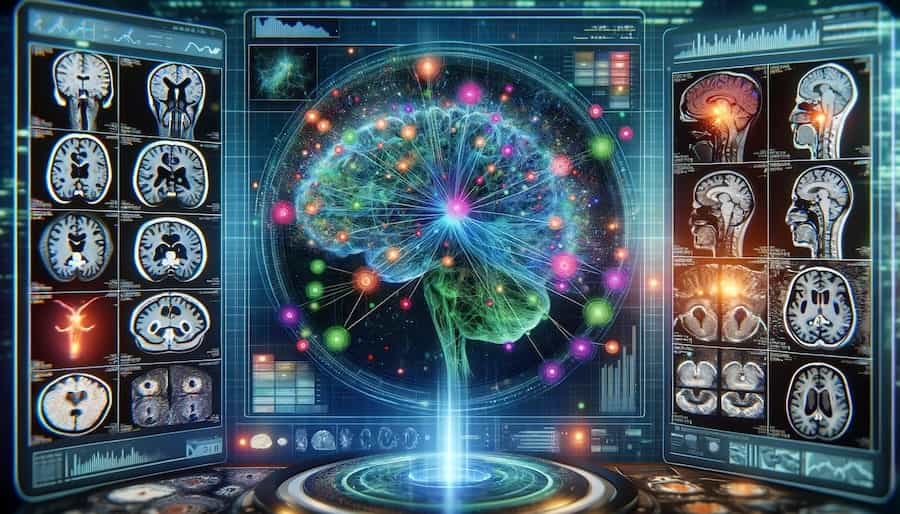
Imagine you’re trying to find a hidden treasure in a vast ocean. That’s kind of what doctors do when they’re looking for tiny clues in medical images that could reveal health issues. It’s meticulous, it’s crucial, and yeah, it’s pretty complex. Now, enter the world of medical imaging Analysis powered by AI – it’s like suddenly having the ultimate treasure map that highlights where X marks the spot.
AI in medical imaging can not only reduce costs significantly, but it can also cover up human error. Doctors and technicians are scanning thousands of images every month, or maybe every week. This can sometimes create false positives. You don’t need to worry about overloading AI, which is why it’s so beneficial.
Personalized Medicine
Personalized medicine with generative AI is like having a tailor for your health – one who crafts treatments that fit you perfectly. By analyzing your health data, this AI tailor can predict which treatments will suit you best, considering your unique genetic makeup and health history.
It’s like having a doctor whose only patient is you. Physicians will often forget minor details and the minutia of your health history. They typically need to be reminded. Not because they are inadequate, but because they are human. AI does not have this problem.
Training and Simulation
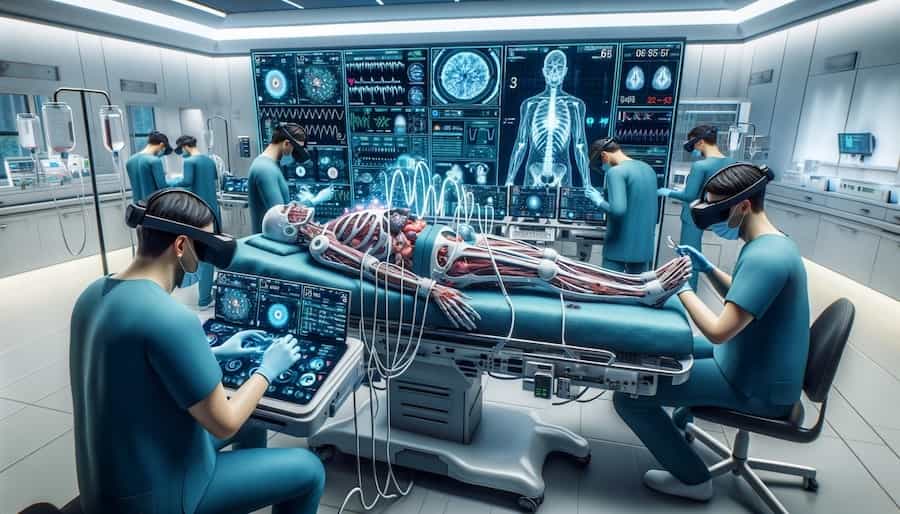
Imagine if doctors and nurses could practice their skills in a risk-free, virtual world. Generative AI makes this possible by creating realistic patient scenarios complete with a variety of symptoms and conditions. It’s like flight simulators for pilots, but for medical professionals. This way, they get to hone their skills and make all their mistakes in a safe, simulated environment, ensuring they’re well-prepared for the real deal.
Digital Pathology and Diagnostic Assistance
Finally, in digital pathology, generative AI is revolutionizing how diseases like cancer are detected. Companies like Paige.AI are at the forefront of this, using AI to scour through pathology slides with a precision that’s hard for human eyes to match. It’s like having a super-smart assistant who can sift through mountains of data and spot the needle in the haystack – the early signs of diseases like prostate cancer. Moreover, they’re working on integrating these insights into electronic health records, making this valuable information easily accessible to healthcare professionals.
Future of AI in Healthcare
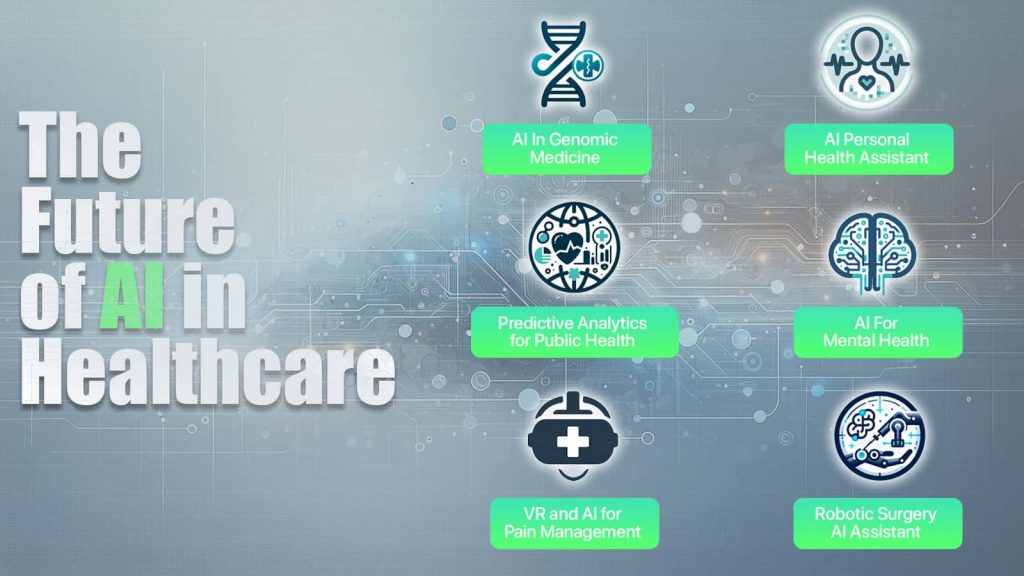
Let’s say the future is dim. There is some light, just because AI is so complicated. But that light at the end of the tunnel is brighter than 2 feet from the sun. The application potential is immense. Here are some future use cases of generative AI in healthcare and medicine.
AI-driven Personal Health Assistant
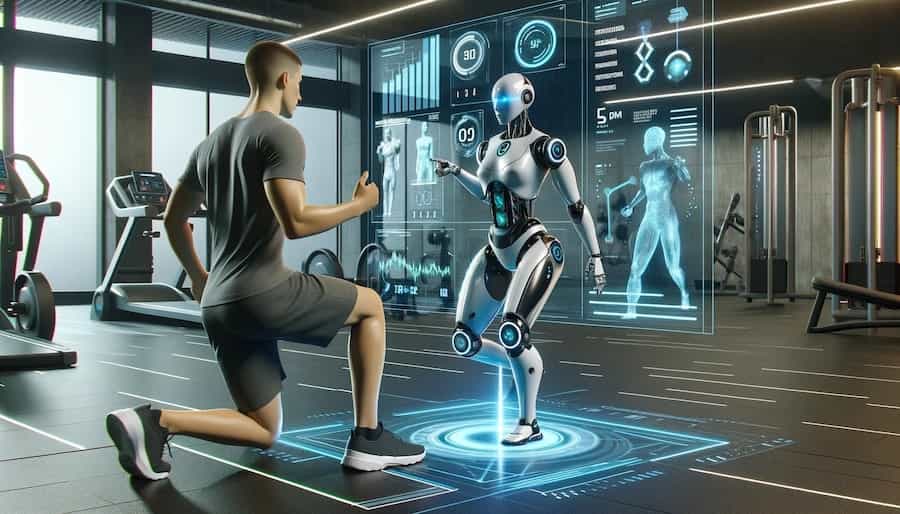
We kind of already have something like this, right? Fitness trackers. The technology is getting better and better every year as new products enter the health device market. Now you can have reminders to get up and move around or notifications to drink more water. Integrating AI is the next level.
With AI, the more sensors a device has, the more data sets an AI would have to analyze. If a device only has heart rate monitoring, AI is not really needed. But if you have heart rate, SPO2, blood pressure, and heart rate variability, now AI can stack the data up and make general conclusions and suggestions about your health. As opposed to now, where you probably have to research topics and come to those conclusions on your own or with help of a physician.
Virtual Reality (VR) Combined with AI for Pain Management
There are many VR applications and it can make an impact in medicine. Imagine strapping on a VR headset and suddenly, you’re in the middle of a peaceful forest or chilling by the ocean waves. But here’s the twist – it’s not just for escaping reality; it’s a clever way to manage pain. For folks dealing with the constant nag of chronic pain or those tough rehab sessions, this AI-powered VR could be like a mini-vacation for your brain, making you forget about the pain and maybe even the need for those pain meds.
Predictive Health Analytics for Public Health
Governments and non-profit organizations are always collecting data about our society – from global health stats to vaccine numbers – to predict health crises. But sometimes certain data is missed. There is also no global shared database that compiles all these numbers together. Even if it did, it would take 1000’s of hours to dig through and come up with conclusions.
One of AI’s best use cases is sifting through millions of data points and coming to conclusions very quickly. If we shared data, AI could serve as a prediction model for national and international health crises. It could sniff out issues before you need to hit the panic button. That’s what makes this a leading issue in developing generative AI in healthcare.
AI in Genomic Medicine
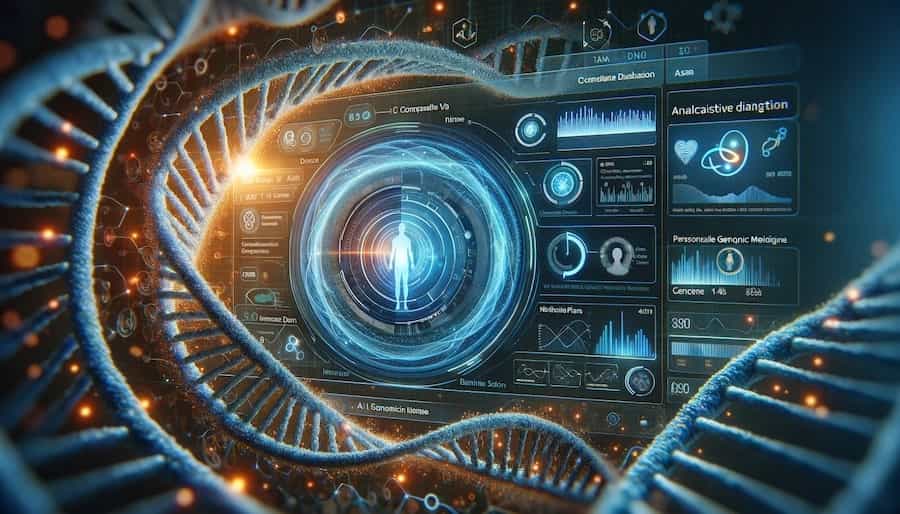
Let’s push the boundaries of what we know about AI in genomic medicine. Envision an advanced AI analyzing your complete genetic blueprint, not merely identifying potential health risks but also crafting a detailed narrative of your body’s strengths, weaknesses, and hidden potentials for the future.
Imagine this AI is connected to your day-to-day life: you eat a meal, and it suggests the exact nutrients you need to optimize your genetic expression for better health. It’s a bespoke lifestyle design, all thanks to the intimate genetic insights provided by an AI that’s like a master architect for your well-being.
Robotic Surgeries with Real-Time AI Assistance
Now imagine a surgical room where AI-assisted robots are seamlessly integrated. These robots possess a level of dexterity that surpasses human capability, enabling procedures that are currently deemed too risky or complex. With cancers so small and issues so microscopic, AI medical robots might be the next-generation solution.
AI for Mental Health
No one would question that we have a mental health epidemic in North America. Whether you’re one who believes it or not, there are enough people struggling that something must be done. It might be a difficult application but this is where some creativity is needed.
Imagine a personal device that can detect subtle shifts in your mood or stress levels by analyzing your speech patterns during phone calls or your text messages. It could gently intervene with suggestions for breathing exercises, guided meditations, or even initiate a check-in call from a friend or therapist when it senses you’re down.
AI can be taught to notice a trend towards negative sentiment in your communication and, recognizing the early signs of depression, it suggests activities known to boost your mood based on past effective interventions. This AI would be like a guardian angel for your mental health, always discreet, always understanding, and always one step ahead in providing support.

